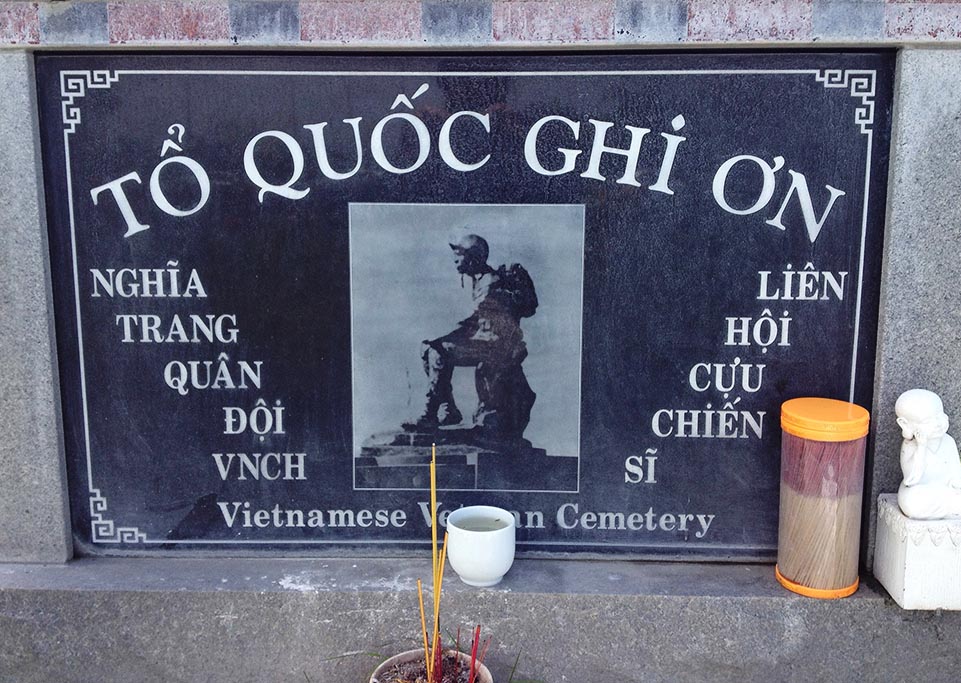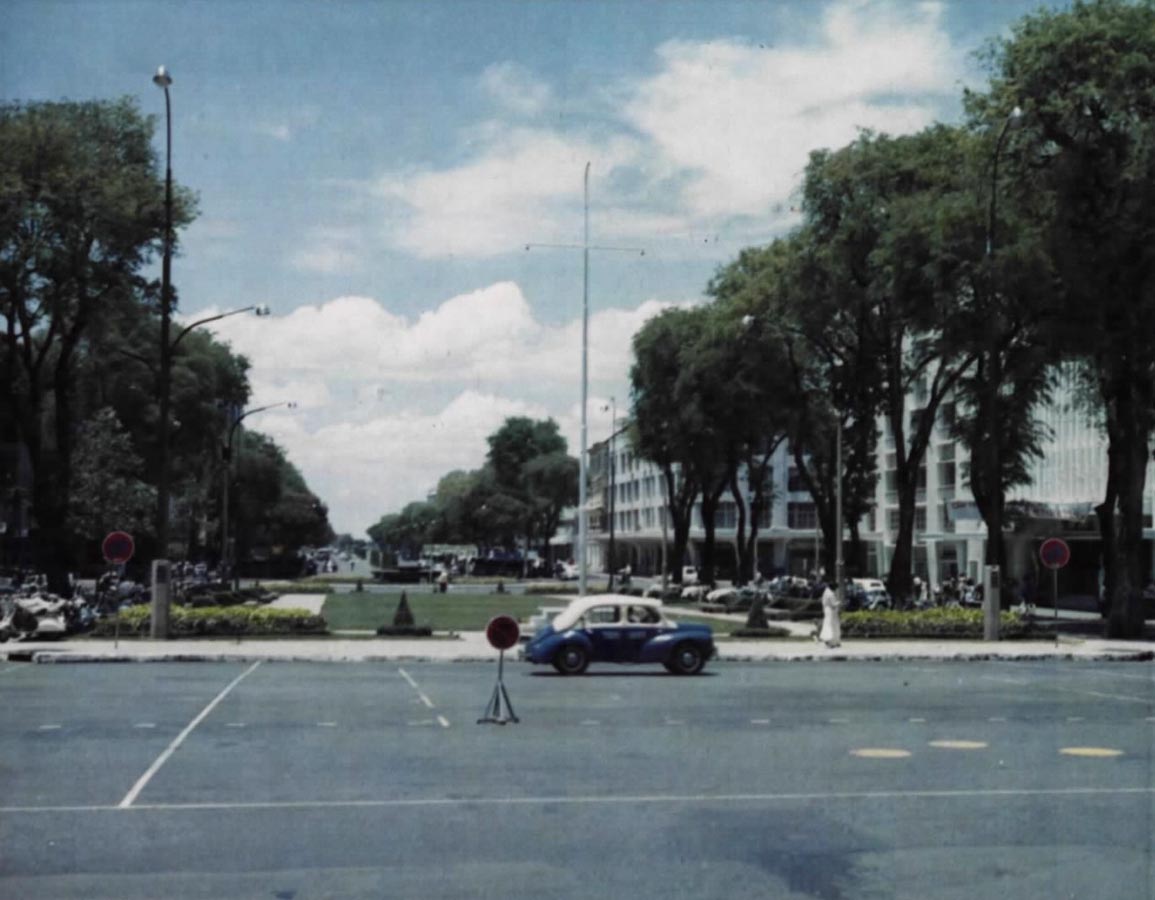Recovering the History of the Losing Side: Historical Research and the Republic of Vietnam
How does one gain access to the history of a vanquished state, a defeated country that can no longer safeguard its own archives or shape its historical narrative? Stéphanie Benzaquen-Gautier writes in the introduction of this forum that “‘failed states’ like the Khmer Republic and the Republic of Vietnam do not leave as many traces as other states.” I would suggest that for the Republic of Vietnam (or South Vietnam), it is not the dearth of historical material that is the issue, but rather the victor state’s control of access to historical evidence as well as Western historians’ lack of interest (until the last two decades) to examine seriously the history of South Vietnam.
Within days after the Vietnam War ended on 30 April 1975, the Democratic Republic of Vietnam (or North Vietnam) – the victor in the war – began the process of not only dismantling the state apparatus of South Vietnam but also eradicating aspects of its culture and history [Fig. 1]. The new communist authority immediately changed the names of major city streets to commemorate famous communist and revolutionary heroes. The most symbolic name change was that of the Southern capital Saigon, which took on the name of the most revered of Vietnamese Communist leaders, Ho Chi Minh. In addition, South Vietnam’s public monuments and symbols, and even its military cemeteries, were vandalized and destroyed [Figs. 2-3). 1
The authority also ordered cadres to “eradicate every cultural and educational work in the South.” 2 Bookstores, publishing houses, and newspaper offices were raided, or coerced into “voluntarily” handing over their collection. In some instances, over-zealous cadres even raided people’s homes looking for “counterrevolutionary” books, music, and art. Some of the confiscated contraband were destroyed, burned, or sold to recycling plants. 3 (Saigon: Osinbook, 2012), pp. 210-211.]
Despite these acts of destruction in the early days, textual traces of South Vietnam – state records, periodicals, newspapers, and books – have on the whole remained intact. Many southerners had anticipated the new regime’s campaign, since they were aware of similar drives to seize allegedly bourgeois and feudal material in North Vietnam. As a result, book dealers, publishers, and store owners were able to hide some portions of their collections in advance of the raids. 4
Furthermore, Vietnamese communist leaders were not like the Khmer Rouge leaders who were bent on destroying all vestiges of the ancient regime. They saw value in preserving the archival documents of the vanquished government along with material in South Vietnam’s national library. For the most part, the new communist government left these collections unharmed but imposed measures to limit access to these sources (as well as other primary sources pertaining to the Vietnam War generally). The strict control is maintained to this day. Newspapers and periodicals from the Republic of Vietnam, for example, are kept in a restricted section, accessible only with permission. For foreign researchers, this means needing to obtain a letter of introduction from one’s state-approved sponsoring institution.
Even when one is permitted to work in the collection, either in the libraries or national archive, how much and what type of information researchers can access cannot be taken for granted. For example, a researcher’s request to view a particular document would have to be adjudicated by archival authorities, whose policies are shaped by the current political imperatives and the Party line. It can therefore be difficult to predict when something might be considered off-limits or too sensitive. While the unpredictability of the correct political line can make archival work challenging, researchers can try to mitigate problems by framing projects in ways that do not appear to threaten the party-state’s ideology or challenge its narrative of the Vietnam War.
The latter point is especially relevant for research on South Vietnam, since the Vietnamese government still does not recognize the legitimacy of the Republic of Vietnam. It continues to portray South Vietnam as a puppet (ngụy) of the United States and continues to refer to the Vietnam War as the War to Resist the United States and Save the Nation (Cuộc kháng chiến chống Mỹ cứu nước), or the “American War” for short. The name implies that the conflict was a war of resistance against US imperialism, rather than a civil war between Vietnamese who had opposing ideologies and visions for the future of their country. South Vietnamese are denied agency and are seen not only as puppets but traitors to the Vietnamese nation. The Communist Party’s claim to rule is deeply rooted in this narrative.
For decades during and after the war, many Western academics – particularly those who were critics of US intervention in Vietnam – also adopted the Vietnamese communist view that the war was a liberation struggle against the United States, and that South Vietnam was a mere American puppet. This perspective – referred to as “orthodox” – has dominated the historiography on the war and led many academics to focus on only the US and Communist sides of the war. 5 In this perspective, studying South Vietnam appeared less important since this state supposedly did not have a critical role. In fact, when discussed at all, historians often dismissed South Vietnamese political and military leaders as corrupt and incompetent. Their judgments about South Vietnam, however, often come from their readings of US official documents and American journalistic writings. 6 Until the 2000s, few saw the need to conduct serious research into South Vietnam’s political, military, or social history. 7
Although the historiography has been evolving and more publications now exist that examine South Vietnam using Vietnamese sources, some historians are still reluctant to shed these long-held orthodox assumptions. Some top scholars of American foreign policy have in fact doubled down on their position. Historians Daniel Bessner and Fredrick Logevall, for example, called for the “recentering” of the United States in the Vietnam War historiography and criticized as inaccurate Vietnam War scholarship that “gives equal or near-equal causal weight for the war’s military, political, economic, and social course to non-American or transnational actors.” 9 Christian Appy similarly finds it problematic to view the Vietnam War as a civil war; to him it was “an American war that exacerbated Vietnamese divisions and internationalized the conflict.” 10 The view that the war was mainly an American War is only tenable if one discounts South Vietnam as its own entity with agency, which Appy does. According to him, without “American intervention, it is hard to image that South Vietnam would have come into being or, if it did, that it would have endured for long.” 11
Peter Zinoman recently noted that orthodox ideas about South Vietnam and the War (such as those expressed by Appy, Bessner, and Logevall) continue to be perpetuated with vigour in popular works such as Ken Burns and Lynn Novick’s Vietnam War documentary and Nguyen Thanh Viet’s Pulitzer Prize winning novel The Sympathizer. 12 These works, like Appy’s op-ed article in the New York Times, have the ability to reach a wide audience. And so, whereas scholarship on the war has taken a “South Vietnamese” turn, providing more nuanced interpretations of the Vietnam War, the old stereotypes are still thriving in the popular imagination.
My latest book, Between War and the State: Civil Society in South Vietnam, contributes to the endeavour to refocus scholarly attention on Vietnamese people, particularly those in the Republic of Vietnam. 13 It challenges the perception that South Vietnam had no agency or society. I chose the topic of civil society because it gave me a unique entrée into society without privileging political or military leaders. There was moreover a practical reason for focusing on civil society, a term in which I include charities, civic groups, and rights organizations. Voluntary organizations left textual evidence. By South Vietnamese law, groups had to apply for government permission to operate, and these applications, along with associations’ constitutions and bylaws, have been preserved in the National Archive in Ho Chi Minh City (Archive No. 2). While the archival records provide basic information about a wide range of voluntary groups operating in South Vietnam, information about the groups’ activities can be gleaned from other sources including association bulletins and newsletters, newspaper coverage of club events, or reports of activist groups’ street protests.
To supplement the archival and published sources, I also relied on oral interviews with about two dozen past participants. Almost all interviews with people living in Vietnam were done in person, while interviews with those living in the United States and Canada were conducted mainly by telephone and email correspondences. In Vietnam, my research assistant and sponsoring institution helped facilitate introductions to former civil society participants such as student union leaders and activist priests. We used the snowball technique to find more interlocutors. Participants living outside Vietnam were also found through the snowball method, using familial and social connections. These interviews provided insight into participants’ personal experiences and motivations for taking part in public activities.
The internet was also useful. Blogs written by past participants of civic groups and websites of former groups helped to fill gaps or corroborate my findings. For example, blog posts of Doan Thanh Liem recount his personal experience with various civic projects, including his participation in a long-running community development project of several underserviced districts on the outskirts of Saigon in 1965-1971. His writings and other past participants’ posts reveal that many participants took pride in voluntary work and many remember their activities with fondness and nostalgia. Tellingly, many of the participants have continued to be active in civil society and some remained in contact with peers from their associational work during the war.
While there was some administrative red tape, I did not encounter too many barriers when researching in Vietnam. It took time to obtain permission, such as getting support from a research institution, applying for a research visa, and then requesting permission to use various research facilities. On the surface, my research on associational life does not appear controversial or politically sensitive. When conducting research in Vietnam and especially during the interviews, I avoided the term “civil society,” which connotes political activism or dissent. Instead, I used more innocuous descriptors such as voluntary associations and charity groups. Nevertheless, I was not given access to all the material I requested. During my time at the archives in 2017-2018, all my requests pertaining to religion were denied. Even documents on the Scouts movement were deemed religious and off limits. Fortunately, some US libraries (e.g., Cornell University Libraries) have a wealth of Vietnamese material. Furthermore, almost all past participants I was introduced to for interviews in Vietnam were former members or supporters of the National Liberation Front and not supporters of the Republic of Vietnam. For this reason, the interviews with interlocuters living abroad were important to generate a balanced perspective.
Although researching a defunct state poses some challenges, it is not insurmountable in the case of South Vietnam. Researchers interested in the history of South Vietnam need to devise strategies to navigate the archives and to search for additional sources outside of the state-guarded repositories. While scholarly attitudes regarding the importance of studying South Vietnam are changing and rigorous scholarship is being produced, there is still a lot more to uncover and, just as importantly, there is a need to make sure new insights reach the public.
Van Nguyen-Marshall is a Professor in the Department of History at Trent University in Canada. Her research interests are Modern Vietnamese History, focusing on associational life, civil society, and the Vietnam War. Her book Between War and the State: Vietnamese Voluntary Association in South Vietnam (1954-1975) was published in 2023. Email: vannguyenmarshall@trentu.ca

